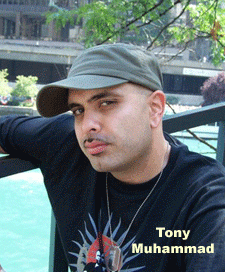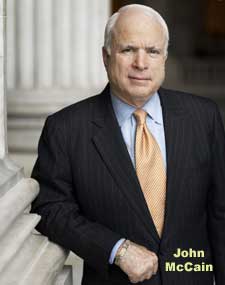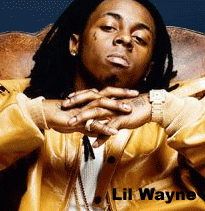
http://www.youtube.com/watch?v=FlC4LS0mLTU
 Not many people know that reknowned producer J-Dilla who died two years ago from Lupus was uninsured. Thats horrific when you consider he produced multi-platinum selling songs for everyone ranging from Busta Rhymes on down to Janet Jackson to De La Soul and Common. One would think a man of his fame would be insured like the record label executives who own part of and oversaw the placement of Dilla’s music.
Not many people know that reknowned producer J-Dilla who died two years ago from Lupus was uninsured. Thats horrific when you consider he produced multi-platinum selling songs for everyone ranging from Busta Rhymes on down to Janet Jackson to De La Soul and Common. One would think a man of his fame would be insured like the record label executives who own part of and oversaw the placement of Dilla’s music.
As shocking as it may seem, Dilla is not an usual case. Several years ago the Hip Hop community was called to action to raise money for popular producer Sam Sneed who worked alongside Dr Dre at Death Row Records and produced tracks for artists like Snoop Dogg. Sneed developed brain cancer and had no insurance. Because of fundraising efforts some of Sneeds bills were able to be paid and he eventually recovered, but sadly his plight was indicative of what so many ordinary folks are going through.
When I think of the untimely deaths of Texas Hip Hop legends Pimp C and DJ Screw, I wonder if their on going bouts with drug addictions were something that could’ve been dealt with differently with proper healthcare that has prevention as main focus and not reaction which is what happens when we go into emergency rooms. When I think of legends like Cowboy of Grandmaster Flash & Furious Five, Professor X and Sugar Shaft of X-Clan or Big Pun, I have to wonder if accessible , affordable healthcare could’ve made the difference for them.

Hip Hop pioneer Paradise Grayis uninsured and suffers from type2 diabetes. He walks a thin line day in and day out with his health
The sad thing about the situation surrounding X-Clan is that Paradise Gray who is one of the two living members left currently suffers from type2 diabetes. He too can’t afford health insurance and talks about the trials of having to go to a clinic wait for hours and he’s not always bale to get ghis medicine. he walks a thin line day in and day out with his health.
He noted that in the case of the late Professor X aka Lamumba Carson, had gone to the hospital 3 days before passing but wasn’t given a penicillan shot which we later found out could’ve saved his life..
In the video we see Reverend Lennox Yearwood of Washington DC based Hip Hop Caucus addressing the issue of Healthcare. Sitting alongside him is Ma Duke‘s J-Dilla’s mother and Phife Dawg of Tribe Called Quest who recently had serious health concerns that he is just beginning to recover from.
 Today in Inglewood, California there are huge crowds showing up for a free healthcare at the Forum. The lines and crowds are so large that people are being told by all the major news stations in LA, not to come down. People have been given tickets and appointments to be seen by this large army of volunteer doctors stretching until next week. This free health clinic is spending time with people, many who haven’t had a check up in over 10 years because healthcare except for extreme emergencies is out of reach.
Today in Inglewood, California there are huge crowds showing up for a free healthcare at the Forum. The lines and crowds are so large that people are being told by all the major news stations in LA, not to come down. People have been given tickets and appointments to be seen by this large army of volunteer doctors stretching until next week. This free health clinic is spending time with people, many who haven’t had a check up in over 10 years because healthcare except for extreme emergencies is out of reach.

 The past few months have indeed been strange (but yet not surprisingly strange) for a few of us in and among the conscientious Hip Hop community in relation to encounters with police. On the afternoon of Friday, May 8th, I, myself, was arrested for the very first time in my life. I wasn’t taken to jail, but I was fingerprinted on the spot and fined, charged with soliciting in the city of Miami Gardens, Florida. What was I actually doing? I was passing out invitations for a special Mother’s Day program at my mosque. I was passing out the invitations in traffic as many other FOI (Fruit of Islam) were doing throughout Miami-Dade county, nationwide and internationally. I was stopped by a police officer and asked if I was selling anything. I said “No.” He inquired about the Final Call newspapers that were in a bag I was carrying. He asked me if they were for sale. I told him that they were not for sale, but that we accept donations for them if offered. It was at this point that the officer asked for my ID and the “arrest” took place.
The past few months have indeed been strange (but yet not surprisingly strange) for a few of us in and among the conscientious Hip Hop community in relation to encounters with police. On the afternoon of Friday, May 8th, I, myself, was arrested for the very first time in my life. I wasn’t taken to jail, but I was fingerprinted on the spot and fined, charged with soliciting in the city of Miami Gardens, Florida. What was I actually doing? I was passing out invitations for a special Mother’s Day program at my mosque. I was passing out the invitations in traffic as many other FOI (Fruit of Islam) were doing throughout Miami-Dade county, nationwide and internationally. I was stopped by a police officer and asked if I was selling anything. I said “No.” He inquired about the Final Call newspapers that were in a bag I was carrying. He asked me if they were for sale. I told him that they were not for sale, but that we accept donations for them if offered. It was at this point that the officer asked for my ID and the “arrest” took place. 

 Saw this article today by Dave McNeely and he makes some good points about the upcoming gubernatorial race, the challenges facing the state and the likely changing political landscape of the Lone Star state. However, what he’s not saying is the obvious-Why are the Democrats so Spineless? Are they cowards afraid of stepping up and being counted in any of the upcoming races? I just knew after all the excitement that President Obama inspired with his impressive victory that shattered the myth that those politically waving a blue flag can only win in states along the Pacific or North Atlantic seaboards. Obama and Howard Dean prior to him showed and proved that the rest of the country is up for grabs including Texas if you run the right type of campaign.
Saw this article today by Dave McNeely and he makes some good points about the upcoming gubernatorial race, the challenges facing the state and the likely changing political landscape of the Lone Star state. However, what he’s not saying is the obvious-Why are the Democrats so Spineless? Are they cowards afraid of stepping up and being counted in any of the upcoming races? I just knew after all the excitement that President Obama inspired with his impressive victory that shattered the myth that those politically waving a blue flag can only win in states along the Pacific or North Atlantic seaboards. Obama and Howard Dean prior to him showed and proved that the rest of the country is up for grabs including Texas if you run the right type of campaign.







 A flick came out in the mid 90’s called “Tales from the Hood,” it was kinda like a ghetto version of “Scared Straight;” only with zombies. Perhaps the best part of the movie dealt with a gangsta named Krazy K who was undergoing some heavy sci fi rehabilitation by being forced to relive scenes of the many murders of black folks that he had committed against a backdrop of lynchings and cross burnings. After listening to the latest youtube hit “Whip it “(Like a Slave), I wonder if such a rehab session would work on Lil Wayne? Naw, he’d probably just sit there with that spaced out permanent grin on his face sippin’ Sizzurp through a styrofoam cup and mumbling auto tune lyrics as visions of black death flash before his eyes.
A flick came out in the mid 90’s called “Tales from the Hood,” it was kinda like a ghetto version of “Scared Straight;” only with zombies. Perhaps the best part of the movie dealt with a gangsta named Krazy K who was undergoing some heavy sci fi rehabilitation by being forced to relive scenes of the many murders of black folks that he had committed against a backdrop of lynchings and cross burnings. After listening to the latest youtube hit “Whip it “(Like a Slave), I wonder if such a rehab session would work on Lil Wayne? Naw, he’d probably just sit there with that spaced out permanent grin on his face sippin’ Sizzurp through a styrofoam cup and mumbling auto tune lyrics as visions of black death flash before his eyes. Unlike other rappers, Lil Wayne aka Weezy has never prided himself as being the “Malcolm X of the Hip Hop generation” and when he has his frequent run ins with the law he isn’t all over the TV yellin’ that he is “a black man being persecuted in America just for being black” a la Dr. Henry “Skip” Gates.
Unlike other rappers, Lil Wayne aka Weezy has never prided himself as being the “Malcolm X of the Hip Hop generation” and when he has his frequent run ins with the law he isn’t all over the TV yellin’ that he is “a black man being persecuted in America just for being black” a la Dr. Henry “Skip” Gates.



